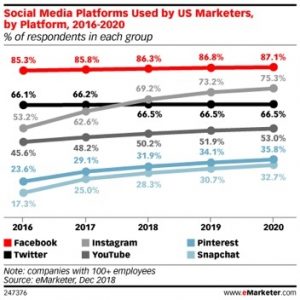Search is an ever changing sphere with growing influence and power.
Google algorithm updates can hit from nowhere and have a devastating impact on a business that relies on natural search for a lot of its revenue.
Panda and Penguin, the content and link focused algorithm updates, have been getting a lot of press, as has Mobilegeddon, the update focused on mobile search and mobile friendliness. Google has also tweaked its local search algorithm and vastly changed the way in which it lists local businesses and pulls through Google + listings.
With new technologies changing search and people demanding more and more personalisation than before, it’s vital that marketers get their heads around why updates happen, what Google is trying to do and the current state of search so that they can get the best out of it and succeed.
The points listed below should get you well on your way.
Understand WHY Google is updating its algorithm so much
Like any service provider, Google wants to continually justify its dominance over search. Doing this means that they can continue to attract user traffic and, therefore, use that dominance over search to keep commanding high advertising fees for their display and text ads.
If Google started to prioritise websites in the SERPs that had useless content and spam then users would find another search engine and Google would lose its dominance and revenue.
No service provider wants to lose the customers that make it rich, so Google pulls out all the stops to theoretically provide a good user experience at all times. We say theoretically, because they haven’t got it 100% right yet. Yet.
If you fall outside what they deem to be a good user experience then you will suffer in the rankings. It is as simple as that.
Google is going to continue to refine and tweak its algorithm so that users are provided with the best quality websites for their search. They’re a big business and they are putting their money where their mouth is.
This means you need to help them out as much as possible.
Panda – Get savvy about the content on your site
The Panda algorithm update first hit in February 2011 and is centred on websites that have thin, useless, spammy or duplicate content.
So many webmasters gamed the system by putting up pages stuffed with keywords or writing blogs just for rankings; neither of these approaches are good for customer happiness and user satisfaction, so Google stamped on them.
The Panda algorithm update was Google’s way of prioritising websites that deliver fresh, high quality content to their customers. If your website has lots of thin pages that are there just to make up the numbers then we recommend having a look through and seeing what can be removed or expanded upon.
The Robots.txt protocol is useful here as well, because you can use it to tell Google not to index certain pages or follow links from them. If you get a lot of blog commenting spam then making links from that page NoFollow should be a course of action you take.
Basically, don’t have pages you don’t need and always write for people, not search engines.
Search engines and users love fresh, original and insightful content on a website, don’t make the mistake of thinking that certain industries have less potential for this.
Penguin – Get rid of unnatural links and exact match anchor text
The Penguin algorithm update was a massive wake up call to anyone with unnatural looking link profiles.
What exactly is an unnatural linking profile? Examples of this include:
- Lots of exact match anchor text
- A big difference between your number of links and the number of actual linking domains pointing to your site
- Links from websites that are clearly set up as SEO tools; SEO directories for example.
Websites were either given a manual penalty by Google or were caught up in the algorithmic penalty. Websites given a manual penalty were given a message in their Google Webmaster Tools account.
Protect yourself against a Penguin update by going through your link profile and noting any links that are examples of the above. If you were lucky enough to avoid a manual penalty, you can use the disavow tool in Google Webmaster Tools (now Search Console), which allows you to tell Google not to look at certain links.
If you’ve had a manual penalty, Google’s guidelines will help you identify and overcome it.
Understand semantic search
Rather than being an algorithm update designed to strip out bad websites, this is a complete change to the algorithm and focuses on synonyms and context.
Google was brilliant at searching millions of documents for specific words in microseconds. However, they have updated their algorithm in the same way that a Lamborghini replaces its engine so that it runs better.
Hummingbird then, is a complete revamp of Google’s algorithm that means that they are now a lot better at understanding the meaning and context behind phrases and relating them to data it already holds about the searcher, like location and previous search behaviour.
This improves the quality of the search results for many people and means that queries are understood and answered better than before.
What does this mean for SEO in 2015? It means you need to be a little more creative with your keyword strategy, moving away from two/three word exact match phrases and tuning yourself into new ways in which users search.
Take Google’s Voice Search for example, people using these tools are asking more questions and the queries are more long tail. It would feel pretty stupid saying, “refuse collection Bournemouth” to Google Voice Search, wouldn’t it?
Searches for queries that start with “how do I” have gone up a lot in the last two years alone, are you meeting those queries?
One good example of this is one of our clients, Call2Call; people looking for “cheap calls Bangladesh” two years ago are now also searching for “how do I call Bangladesh” or “cheap calls to Dhaka”.
Because Google understands the context behind these queries a lot better, users will get where they need to be, will that be your site?
Understand the importance and potential of search
I went to “This Is Search 2015” last week and one of the key takeaways was that search is absolutely vital to your business in terms of figuring out what calls to action work best, where your audience is and the questions they want you to answer.
Making search a fundamental tool in your business and marketing strategy is recommended, due to the sheer amount of data available that is easy to access.
Also, don’t discount PPC as a major asset in this; despite appearances, natural and paid search are not enemies on the opposite ends of the spectrum. They can assist each other in many ways, particularly in helping you gather more data about your audience.
You can also integrate your PPC with your keyword ranking tools so that you bid less for a keyword if it ranks highly in natural search.
There is so much you can achieve through search these days, this article hasn’t even scratched the surface.
Keep reading and don’t get complacent
I have been working in digital for a while now but would never fall into the trap of thinking that I know everything; I don’t. Nowhere near. Everyone, even people who have been doing technical SEO since the dawn of time, need to keep reading industry blogs, going to conferences and being active in the community.
Digital moves incredibly quickly and is a much different sphere than even a year ago. This is why publications like Google’s Webmaster Blog, Search Engine Land and (my favourite) Search Engine Watch are vital go-to places for anyone wanting to learn more about search.
Keep reading, keep researching and never get complacent and you will be on your way to truly understanding what makes a website soar or fall in the rankings.
(175)





